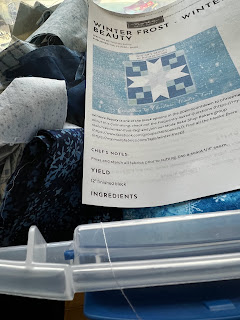Just because you think you're old and can't learn anything new--think again! I've been spinning for over 40 years--taken a few classes from 'experts', taught myself some new tricks from books, suggestions from fellow spinners and now we have youtube! A great source when learning a new technique!
For many months, I receive an extra 'round up' of spinning news from around the world. I'm so happy I found this--Sheila Dixon--handspinning newsletter! I've visited many excitng places though her newsletter--sign up for the free edition. She also has a paid newsletter. You won't be sorry--you learn something new each month from her newsletter==I guarantee!!
In the April newsletter, there was an article about cross lacing--I've heard of this technique, but totally dismissed it from my brain! Then it pops up in the newsletter and I took another look-- well, I'll be! This is a game changer as I've been spinning cotton for years--my feet treadle faster and faster to put enough twist in that short fiber to get a finer yarn.
Cross lacing can stop there being so much draw in, slowing the wheel down and allowing all the twist that we need without over twisting. You do this by tracing your single across the bobbin hooks, from one side to the other. Or if you have a slider style flyer wrap your single over the metal rods of the flyer.
And when I go to internet--there are lots of articles on this topic--Boy! I was slow to jump on this bandwagon. Thanks Sheila for getting me to move off my soft seat and explore something almost 'new"! Here is a video from world renown spinner, Judith MacKenzie showing how to use cross lacing! I'm excited to try this with my cotton spinning--off to the wheel............................


































